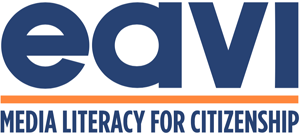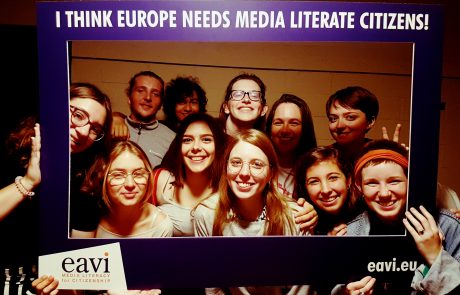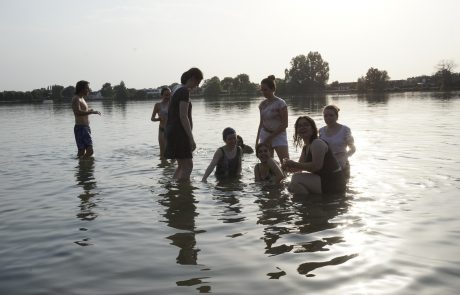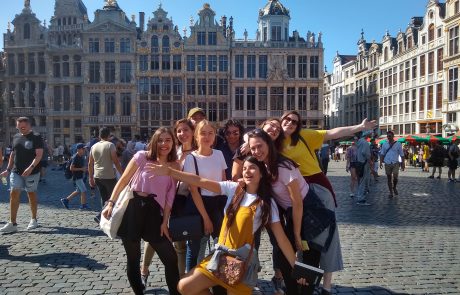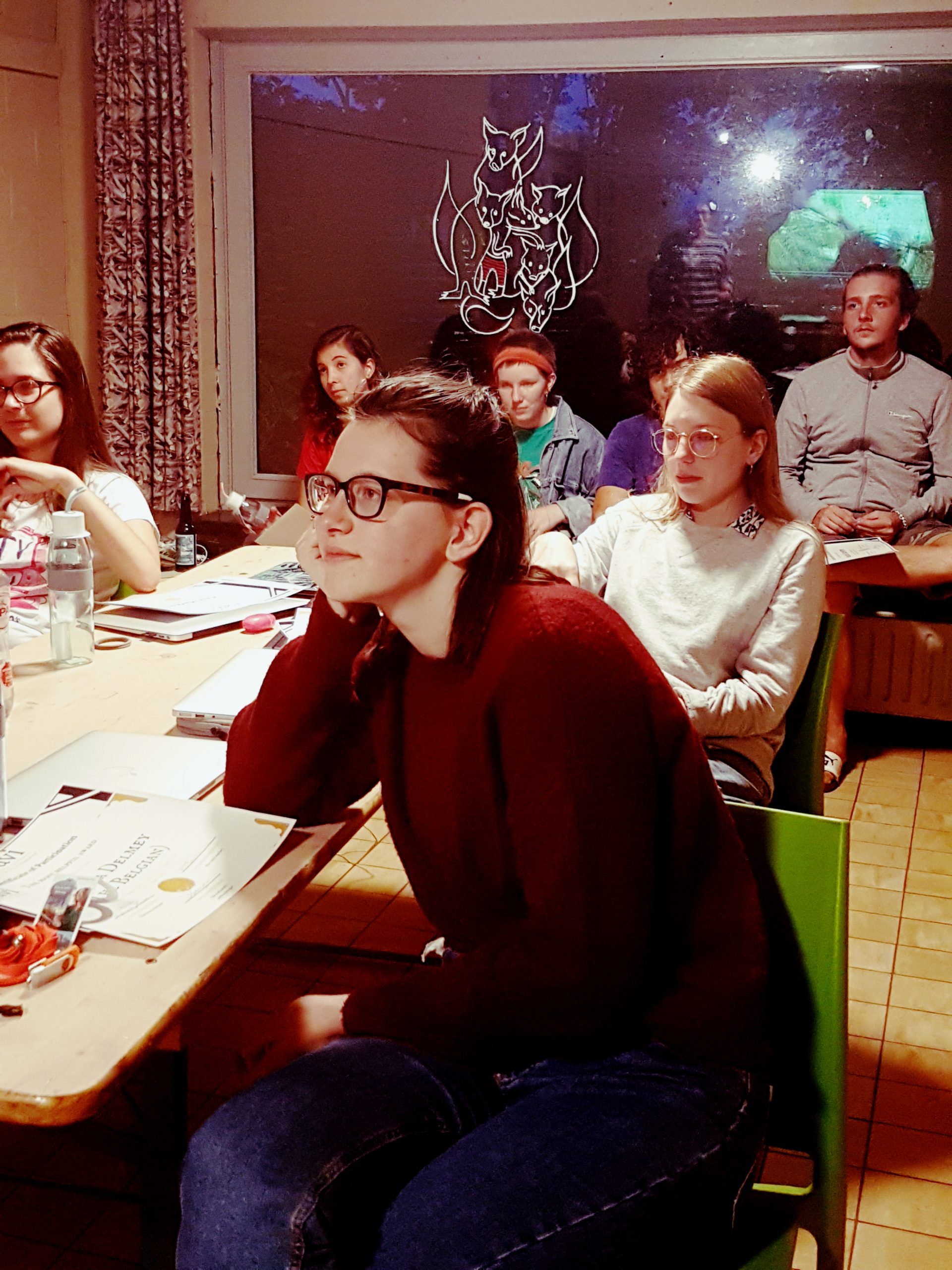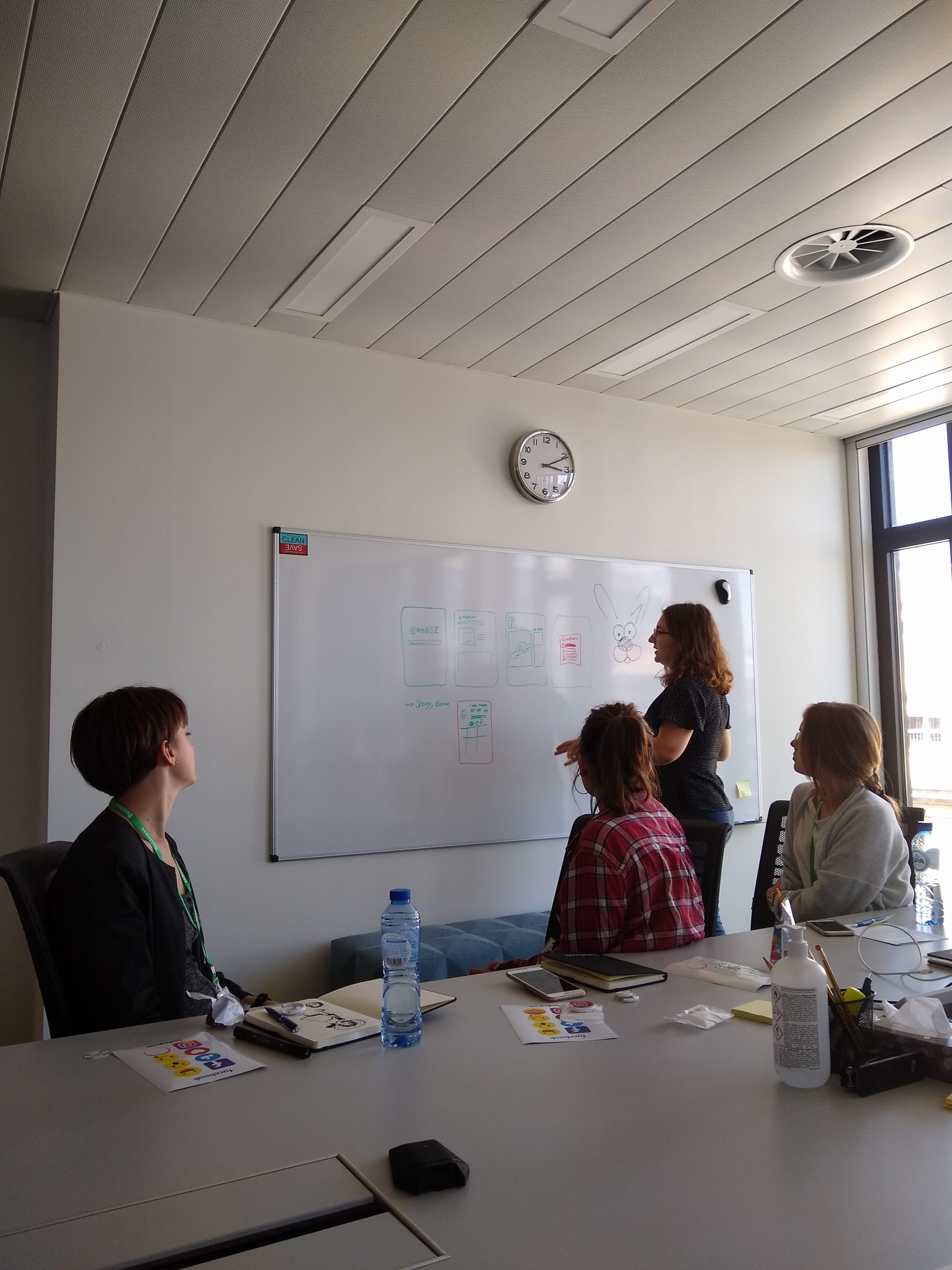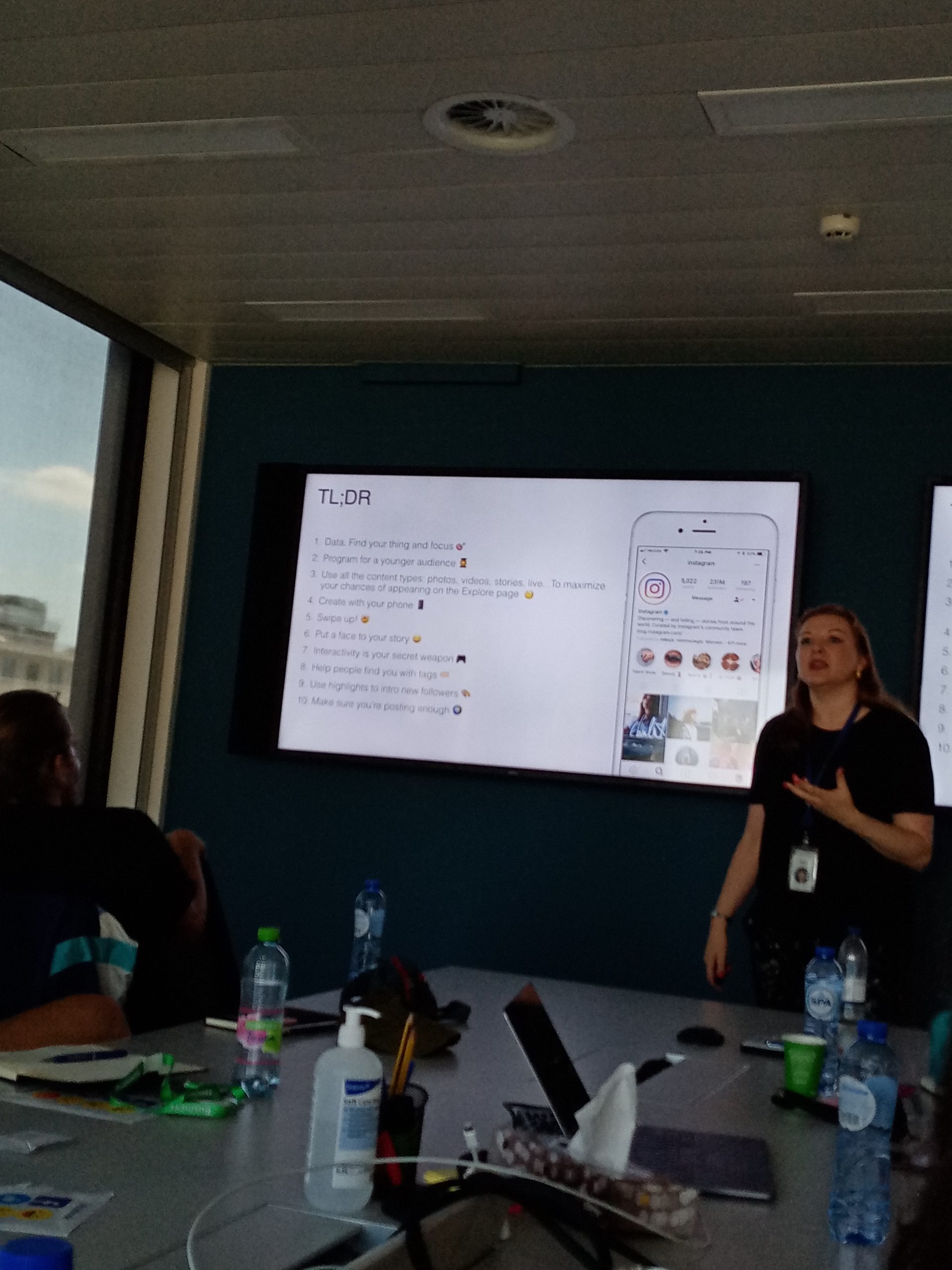EAVI Summer Camp 2019
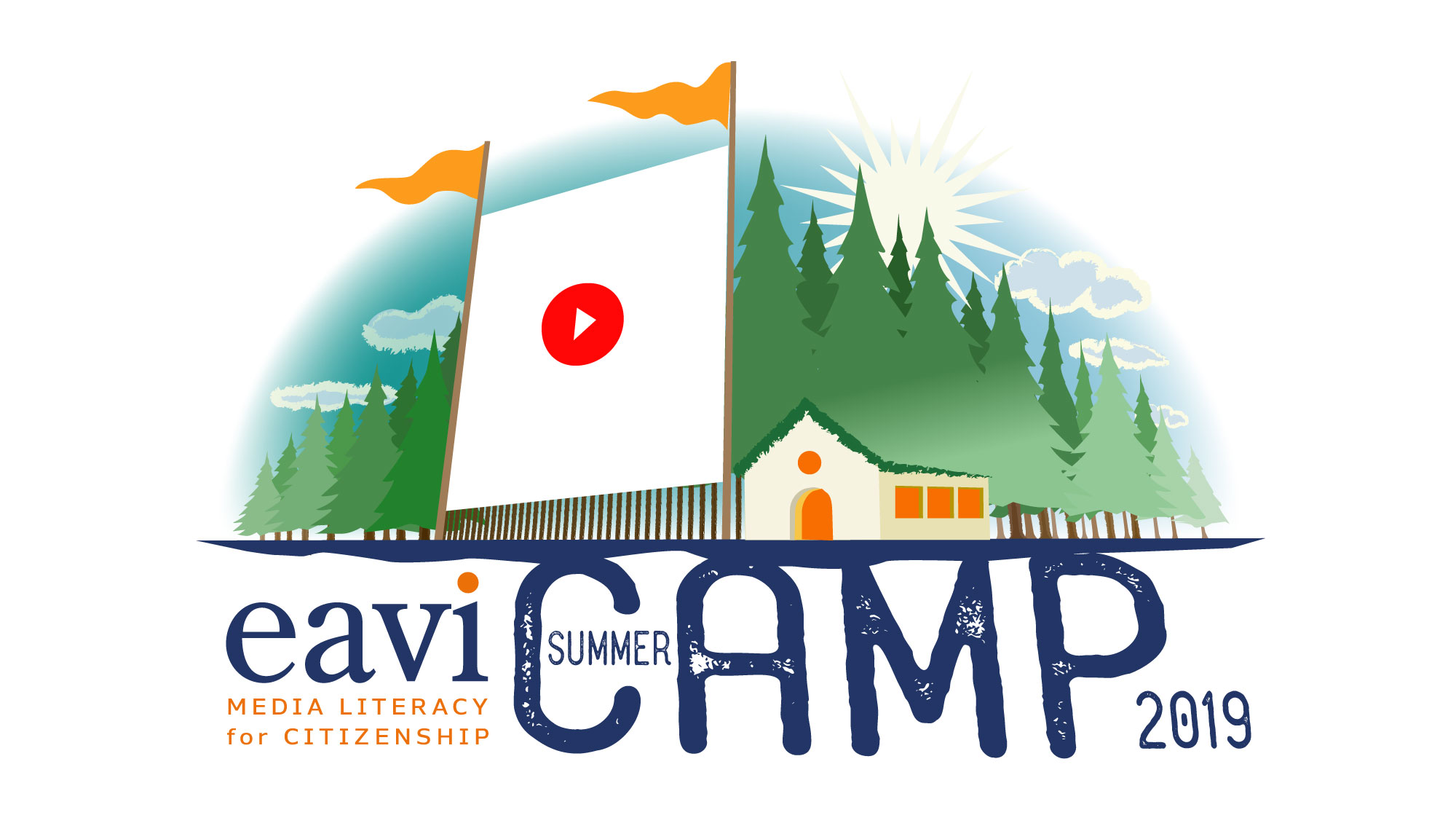
In 2019 EAVI launched a pilot project, the EAVI CAMP (23rd – 31st July 2019), to raise awareness and teach media literacy to young people coming from all over Europe.
The first edition aimed at providing training through a learning-by-doing and peer-learning approach. Young volunteers didn’t only learn what disinformation and misleading images are, but in ten days they had to be up to the challenge to create misleading content!
Fun and entertainment were at the core of the overall experience!
Check out some of the videos produced on our Youtube channel and read the activity report below!
EAVI SUMMER CAMP – Activity Report
In line with its continuous concern to protect participative democracy and active citizenship across Europe by supporting its citizens to critically engage with the media in a conscious and judicious way, EAVI took a further step, in 2019, to reach its younger public: it launched a summer youth camp for Europeans aged between 18 and 27.
The idea of the summer camp was born out of EAVI’s heightened sense of duty towards the European youth with a right to vote, as a particularly vulnerable audience – highly exposed to the insidious influence of the new digital communication technologies.
The focal point of the camp was to combine interactive workshops with practical activities, aiming to enable participants to analyse and evaluate the power of images and messages they are being exposed to daily, and to recognize how the media filter their perceptions, shape their beliefs, and influence their personal choices. Particular attention was paid towards developing the participants’ critical consciousness about the impact that exposure to increased levels of fake news, hate speech, populism and propaganda has on their individual well-being and, more broadly, on the wellness of society.
Being a pilot project, the 2019 edition of the camp was able to accommodate only a test sample of twelve students from eleven European countries, who joined the camp with the common goal of achieving the level of media fluency that would allow them to easily distinguish the fake news permeating the digital environments they navigate routinely.
Over ten days, the participants attended a series of workshops designed to initiate them in the art of living with the media. Through lectures, case studies, and role-play the students learnt about cognitive biases that media manipulate, how to deconstruct the messages they are being exposed to and to become mindful of the emotional reactions these stimuli trigger and the ways in which their rational thought gets blurred. As part of the awareness-raising laid at the core of all camp activities, the students learnt how to distort and manipulate text, visual and audio messages themselves, in order to have a better grasp of the real power of media, and how they can use it for triggering a positive change in society.
After being equipped with a theoretical background on media literacy, the students were briefed to produce thematic videos that will reflect at least one of the topics touched upon during the workshops. The peer learning component of the camp allowed participants not only to share their understanding and experience of traditional and digital media but also to develop and further improve the technical skills and video production abilities of the group.
A series of six videos were thus produced – five thematic videos touching in various ways on fake news, hate speech and digital footprint, and one trailer for the next edition of the EAVI Summer Camp.
Overall, the 2019 EAVI Summer Camp was a smashing success. It reinforced the fact there is no universally accepted and shared understanding of the concept of media literacy, and developing this capacity collectively across Europe is an ambitious undertaking. It is imperative to consider local, regional, and national undertones in the design of effective tools for creating a media literate society. Without exception, all students underlined the importance of education – both formal and informal, in raising young people’s awareness of the pervasiveness and encroaching effects of today’s (digital) media. They also confirmed the effectiveness of personal stories in creating a much more powerful impact than mass campaigns, even though on a smaller scale. Workshops and activities targeting young children, from secondary school level onwards, as well as adult training designed for enabling parents to raise a new generation of media-literate children, were suggested as top priorities for EAVI’s action plan for the decade ahead.
